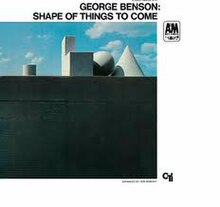
The Prisoner is the seventh Herbie Hancock album, recorded in 1969 and released in January 1970 for the Blue Note label, his final project for the label before moving to Warner Bros. Records. It is dedicated to the memory of Dr. Martin Luther King Jr., who had been assassinated the previous year. Hancock suggested at the time that he had been able to get closer to his real self with this music than on any other previous album. Participating musicians include tenor saxophonist Joe Henderson, trumpeter Johnny Coles, trombonist Garnett Brown, flautist Hubert Laws, bassist Buster Williams and drummer Albert “Tootie” Heath. Hancock praised flute player Laws, suggesting that he was one of the finest flautists in classical or jazz music.
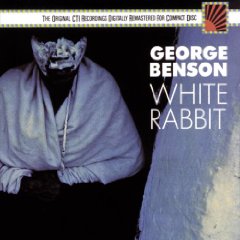
White Rabbit is an album by George Benson. The title track is a cover of the famous Jefferson Airplane song by Grace Slick.This album was George Benson's second CTI Records project produced by Creed Taylor and was recorded nine months after Beyond the Blue Horizon.

First Light is an album by jazz trumpeter Freddie Hubbard. Recorded in 1971, it features string arrangements by Don Sebesky. It was his third album released on Creed Taylor's CTI label and features performances by Hubbard, Herbie Hancock, Eric Gale, George Benson, Ron Carter, Jack DeJohnette, Airto Moreira and Richard Wyands. The album is part of a loose trilogy including his two previous records at the time, Red Clay and Straight Life. First Light won a 1972 Grammy Award for "Best Jazz Performance by a Group".

Sky Dive is the twentieth album by jazz trumpeter Freddie Hubbard, recorded in 1972. It was his fourth album released on Creed Taylor's CTI label and features performances by Hubbard, Keith Jarrett, George Benson, Ron Carter, Billy Cobham, Airto Moreira and Ray Barretto.
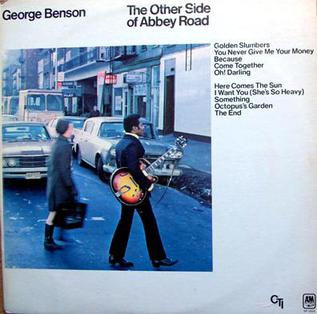
The Other Side of Abbey Road is a 1970 studio album by American guitarist George Benson of songs from the Beatles' 1969 album Abbey Road. It was his last album for A&M Records. The front cover is a photograph of Benson by Eric Meola in E 53rd Street, Midtown East, New York City.

California Dreaming is an album by the jazz guitarist Wes Montgomery, released in 1967. It reached No. 1 on the Billboard magazine jazz album chart and No. 4 on the R&B chart. It was reissued on CD in 2007 with an alternate take of "Sunny".

Beyond the Blue Horizon is a 1971 studio album by American jazz guitarist George Benson. It was his first album released by CTI and included organist Clarence Palmer, drummer Jack DeJohnette, bassist Ron Carter, and percussionists Michael Cameron and Albert Nicholson.

Road Song is an album by the jazz guitarist Wes Montgomery, released in 1968. It reached number one on the Billboard Jazz album chart and number 39 on the R&B chart. It also reached number 94 on the Billboard 200. It was his final recording before his death of a heart attack on June 15, 1968.
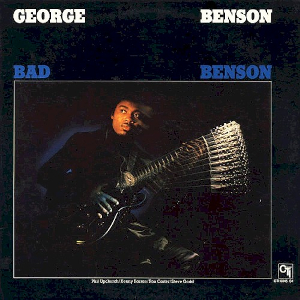
Bad Benson is a 1974 studio album by American guitarist George Benson, released on CTI Records.

Body Talk is a 1973 studio album by American guitarist George Benson, released on CTI Records.

Afrique is a 1971 studio album by Count Basie and his orchestra, arranged & conducted by Oliver Nelson released by the Flying Dutchman label

Sunflower is an album by vibraphonist Milt Jackson recorded in 1972 and released on the CTI label. Assisting Jackson are trumpeter Freddie Hubbard, a star-studded rhythm section composed chiefly of Miles Davis alumni, and, on the first track, string and woodwind accompaniment, courtesy of Don Sebesky.
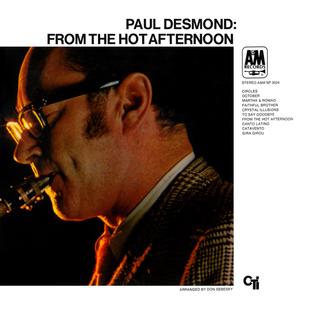
From the Hot Afternoon is an album by American jazz saxophonist Paul Desmond featuring performances recorded in 1969 and released on the CTI label.

God Bless the Child is an album by American jazz guitarist Kenny Burrell featuring performances recorded in 1971 and released on the CTI label.

Blue Moses is a studio album by American jazz pianist and composer Randy Weston featuring performances recorded in 1972 and released on the CTI label.

Time & Love is an album by American vocalists Jackie Cain and Roy Kral featuring performances recorded in 1972 and released on the CTI label.

Free is an album by Brazilian jazz drummer and percussionist Airto Moreira with performances recorded in 1972. The album was released by CTI Records and reached No. 30 on the jazz album chart at Billboard magazine.

Giant Box is a double album by American arranger/conductor and composer Don Sebesky recorded in 1973 and released on the CTI label.

The Rape of El Morro is an album by American arranger/conductor and composer Don Sebesky featuring performances recorded in 1975 and released on the CTI label.

The Prophet is an album by jazz organist Johnny Hammond recorded for the Kudu label in 1972.
